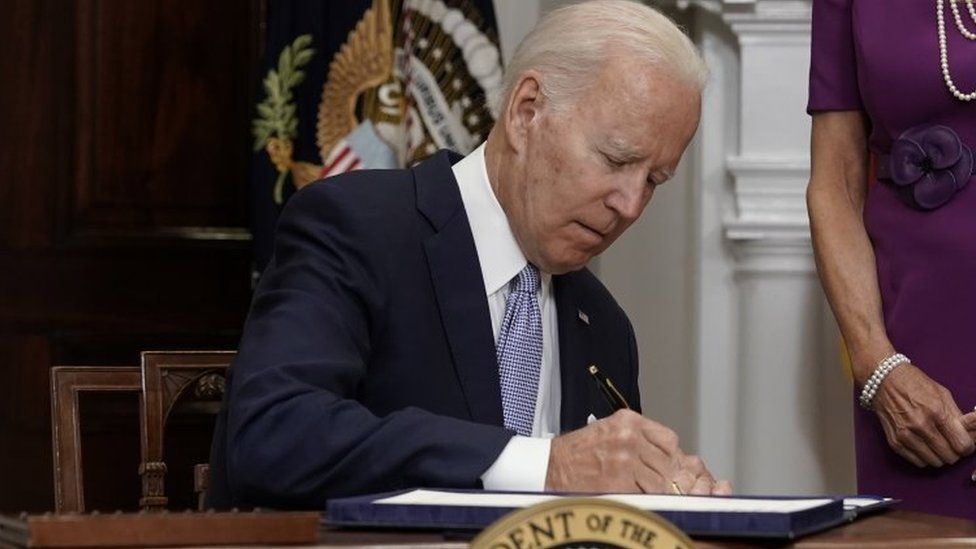After avoiding action on guns for almost three decades, Congress has delivered a mouse.
But it was better than nothing, a life lesson learned by David Hogg that should be shared by everyone.

You might remember movie star-handsome Hogg as one of the survivors of the 2018 massacre at Stoneman Douglas H.S. in Parkland, Fla. He and some of his classmates became overnight celebrities when they stood up, organized and became self-appointed spokespeople for the anti-gun movement. They founded Match for Our Lives.
They were outraged. They demanded the world. They demanded immediate action.

Have they had success, he was asked by Time magazine? ”Obviously, if you look at the number of gun deaths, no,” said Hogg, now 22 and a Harvard senior studying the history of conservative political movements. What?
He believes only conservatives are great at picking a target and pursuing it.
“Liberals are organized the way that a bunch of 6-year-olds doing a group project together with a bunch of crayons are,” he said “Conservatives are organized like SEAL Team 6.”
He admits being guilty of the former when he started out. His people went too fast, asked too much, were too in love with their own self-righteous voices.
Then, he would have hated the gun measure just signed into law by President Joe Biden, but not today. He has matured, and learned about life.
“It’s more than has ever been done in my lifetime on the federal level, and that’s progress.”
While the legislation was hailed as “historic,” it was meek, but bipartisan and important for that reason.
It did not ban “assault rifles,” nor large magazine for those guns, nor raise the age of rifle ownership to 21.
Background checks will be tightened — but only for people 18-21. It will bar firearms from more domestic abusers, provide money for mental health and protect schools, and the most controversial — help states implement “red flag” rules meant to deny firearms to people showing warning signs — such as mental instability or threats against themselves or others. (It is controversial because it could deny due process, if not drafted carefully.)
I am letting Hogg speak for the sensible Left — small nibbles are more likely to result in progress than gigantic bites. The bill is a success, even if modest,
Yes, yes, I know what some of you are going to say: The progress is slow. Better than no progress, no? Adults control their need for immediate gratification. Hogg learned that.
Now, this is for the Right, and reasonable gun owners: Does this law sound like anyone is “grabbing guns,” or restricting your right to the weapon of your choice? I mean, assuming you are not a felon, domestic abuser, or a mental case.
And don’t we all want firearms kept out of those hands? Even the majority of NRA members approve of universal background checks.
Yes, yes, I know what some of you are going to say: Gun licenses and background checks won’t stop the criminals from getting guns. True, but these laws do present an obstacle, and then a means to jail them for mere possession, even if guns were not used in the commission of crime.
All rights have to be balanced. The First Amendment doesn’t give you the right to libel someone. The Second Amendment allows for reasonable restrictions, such as the ones just passed.
As for the slippery slope argument, that these weak laws pave the way for stronger ones, well, that might take another 30 years.
Stu, The libel/free speech analogy is inapposite in this context. Committing libel is a civil tort. The person libeled has to sue to collect damages. The government is not a party to the action. Your speech is not restricted in any manner by the government.
The point of restrictions on firearms is to make people who violate them criminals. Big difference.
Like you, I have no objections to reasonable laws on firearms. I’ve never owned one and expect I never will.
It is inexact, but apt. 1A prohibits government from unduly restricting your right to speech.
2A prohibits government from unduly restricting your right to arms.
Good point.
👍
Try to remember how any law, no matter how ‘carefully drafted,’ seems to magically morph over time into something much broader than ever imagined. E.g., Roe v Wade, a ruling that legalized abortion but which over time has led us to the edge of legal infanticide — the so-called horror of ‘partial birth abortion.’ I agree that there MUST be stronger background checks and a reasonable (there’s an elastic word) length of time between submission of paperwork and the issuing of the weapon to the buyer.
The ‘Red Flag’ law scares the heck out of me, as it will allow someone to claim someone else is a potential danger to himself or others. Once that charge of mental shortcomings has been made, that charge will stain the person’s reputation ad infinitum, as exemplified by the man (whose name escapes me) who famously said (after being found innocent of spurious charges against him), “Now, where do I go to get my reputation back?”
As noted, Red Flag is controversial, and must be drafted with great care.
HAPPY TUESDAY !!!
pallie,
So where do we go from here ? I read the summary of this law first, then the law. I still have a nasty headache . ( reminds me of a beer hangover ). I view this law as a ‘quickie’, although obviously, there was nothing quick about it. The Uvalde murders compiled with the poor handling of the actual shootings made congress finally get off of their collective dead butts and try to do something. Red Flags are, as you said, an area that has to be given much thought. That did not happen. This bill was quickly put together to gain faith and trust from the American people. Congress is so divided that it’s almost impossible to get a sensible bill through, only to have the President condemn it.
Hopefully, a new congress will revisit ‘gun laws’ and write a bill or two with real substance.
Tony
I would like to start by saying I share the same views as almost everyone that gun violence needs to be sharply reduced- down to zero, if possible. However, legislation such as this always leaves me asking questions.
(1) How many lives will this legislation save?
(2) How will it be measured?
We might be able to measure the number of people denied access to legal firearms due to the mental instability clause(s). But that’s where it ends. There’s no way to determine if the denied gains access to illegal firearms- which is fairly easy to do. The only measure in place would be if the denied obtains illegal firearms then commits a violent act. Certainly, this could happen. My prediction is this number will be very low.
If this is the first “small nibble,” it’s a tiny one.
You want to argue over “small” versus “tiny”? 😄
A teen (when he committed the crime) was sentenced yesterday by a Montgomery County Court of Common Pleas Judge for killing a young man and injuring others at an East Norriton Bowling Alley last year. He received a sentence of 25-50 years in state prison.
At the time of the shooting he used an illegal firearm. So he already ignored existing laws by obtaining illegal firearms. Then he proceeded to ignore other laws like committing murder, etc. It appears laws don’t mean much to folks like him.
I am just curious if the recent federal legislation were in effect at the time of this incident would it have prevented the tragedy?
Probably not, truthfully. It will have limited impact.